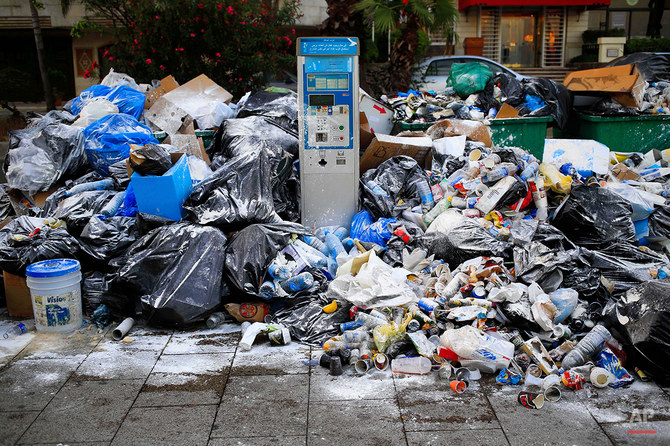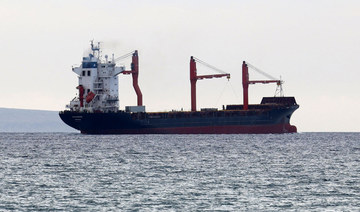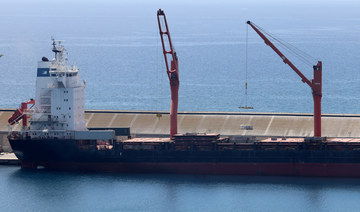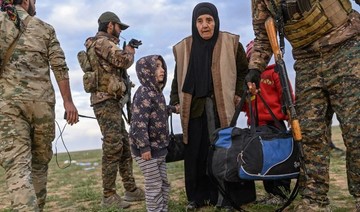Lebanon’s waste management system is the newest target in a trend of metal thefts that officials believe are being carried out by residents rendered desperate by the country’s unprecedented economic collapse.
The latest casualty? One of two landfills servicing the greater Beirut area was forced to shut down over the past week because of rogue scavengers.
The landfill, located in Jdeideh, on the outskirts of the capital, had become a hunting ground for residents scouring for metal and other valuables that can fetch a hefty price on the market.
For decades, Lebanon has been producing more waste than it could manage, culminating in mountains of trash filling streets in 2015 as mass protests erupted condemning the government’s failure to come up with an effective waste management strategy.
Built in 2018 for what was supposed to be a temporary fix to the region’s endemic garbage problem, the landfill has undergone numerous expansions as authorities failed to conjure up a sustainable solid waste management plan.
Instead, successive governments have elected to keep piling trash higher, reaching a height of some 20 meters.
Toufic Kazmouz, the project manager at a local contracting company managing the landfill, told Arab News that the landfill was being expanded while still receiving 1,200 tons of garbage per day before being forced to shut down.
“This is definitely not a sustainable solution to the garbage problem, but the scavengers have made it even worse and have forced us to close shop,” Kazmouz said.
Hundreds of people were trespassing into the landfill daily, he said, forcing the company to halt both construction and operations last week.
According to Kazmouz, scavengers would wait patiently for a dump truck to empty its load before entering the site, armed with plastic bags.
Several scuffles had erupted between scavengers and workers in an environment filled with heavy machinery and equipment.
“It’s simply become an unsafe work environment for everyone involved,” Kazmouz said.
With the landfill shut down, piles of garbage have lined the streets of the Metn and Kesourwan districts after the waste management company Ramco stopped collecting trash.
“We stopped collecting trash because we had nowhere to dispose of it,” Walid Bou Saad, director of Ramco, told Arab News.
Scavengers have forced Kazmouz to shut down the landfill twice since April, despite both the “Internal Security Forces and Lebanese intelligence sending patrols to cordon off the area.”
Discussions are currently ongoing with the Interior Ministry to increase security, he said.
“Municipality workers are expected to be stationed at the site starting today, but we’ll face the same problem again later,” Kazmouz noted.
The hunt for metal is taking place amid soaring unemployment and a dollar shortage in the small Mediterranean country that has caused the local currency to lose some 90 percent of its value while the prices of basic goods and commodities skyrocket.
“It’s metal,” Kazmouz pointed out. “People are really suffering and looking for any means to make some money.”
Metal has become an increasingly valuable commodity in Lebanon, with desperate residents even stealing manhole covers and metal supports from electricity pylons.
Beirut Governor Marwan Abboud told AFP in February that he attributed the theft of manhole covers to the fact that they “are made out of cast iron, which has become much more expensive.”
The covers, weighing up to 60 kg, can fetch up to $100 when sold for scrap. At the current black-market rate, this is equivalent to some LL1.5 million, or more than double the current monthly minimum wage.
The dire situation has also pushed thieves to target Lebanon’s already deficient electricity grid, causing the collapse of a 55-meter pylon connecting one of the country’s four power plants to the region of the Bekaa.
After its metal supports had been stolen, the pylon was no match for the high winds that blew across Lebanon in the winter season.




























